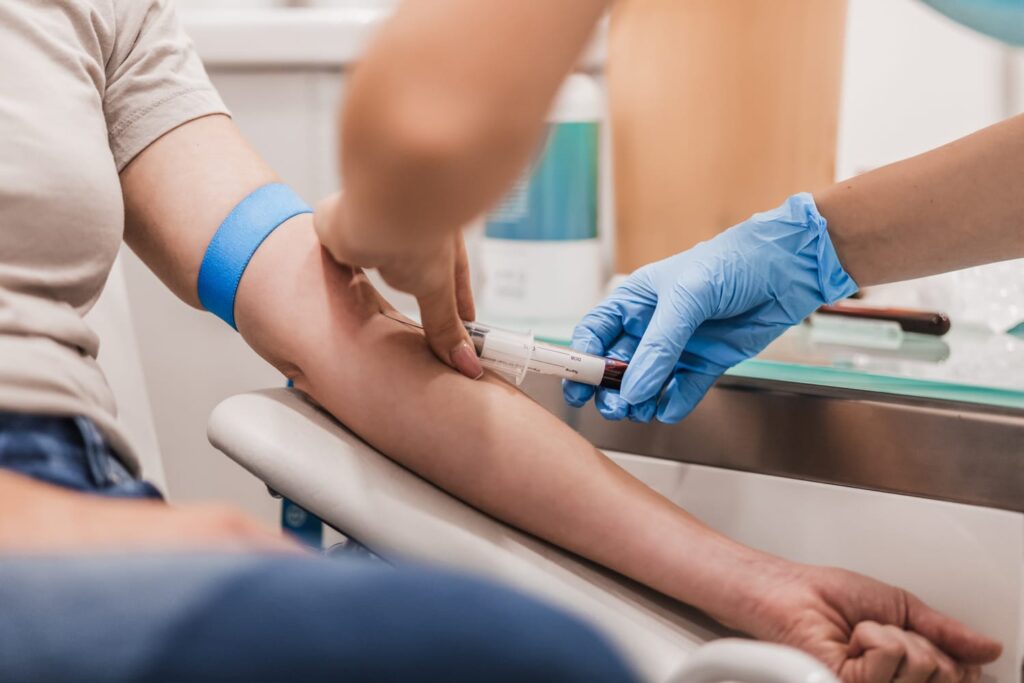
How to Confirm You Are Pregnant? Finding out if you’re pregnant can be an exciting and emotional journey. Whether you’re eagerly trying to conceive or suspecting something might be different, confirming a pregnancy is an important step. In this article, we’ll guide you through the most common and reliable ways to confirm pregnancy, from early signs to medical tests.
Table of Contents
How to Confirm You Are Pregnant

1. Recognizing Early Pregnancy Symptoms
Before you reach for a test, your body might give you a few clues. While every pregnancy is unique, several common early symptoms may indicate you’re pregnant. Here are some of the most common signs:

- Missed Period: A missed period is often one of the first signs of pregnancy, particularly if your cycle is usually regular. However, some women may experience light bleeding or spotting in early pregnancy, so it isn’t always a conclusive indicator.
- Morning Sickness: Morning sickness, which involves nausea and vomiting, usually starts around the sixth week of pregnancy. Though it’s called “morning” sickness, it can happen at any time of day.
- Tender or Swollen Breasts: Hormonal changes during early pregnancy can make your breasts feel sensitive, tender, or swollen. You may also notice darker areolas.
- Fatigue: Increased levels of progesterone during early pregnancy can make you feel fatigued. You might notice yourself needing extra rest more often than usual.
- Frequent Urination: As pregnancy advances, the expanding uterus places pressure on the bladder, causing more frequent urination, particularly at night.
- Changes in Appetite or Cravings: Hormonal fluctuations can cause some women to crave certain foods, while others may develop aversions to specific smells or foods.
- Mood Swings: Hormonal changes can also affect your emotions, leading to mood swings, irritability, or heightened emotions.
2. Home Pregnancy Test

The next step in confirming pregnancy is using a home pregnancy test (HPT). These tests are easily accessible, cost-effective, and user-friendly. Here’s how they work:
How to Use a Home Pregnancy Test:
- Timing: It’s recommended to take a pregnancy test after missing your period, although some tests claim to detect pregnancy a few days earlier. However, the accuracy improves the longer you wait after a missed period.
- Testing Method: Most home pregnancy tests involve either urinating directly onto the test stick or dipping the stick into a collected urine sample. The test will show a result in a few minutes, typically in the form of two lines (positive) or one line (negative). Some tests also have a digital display with words like “pregnant” or “not pregnant.”
- Accuracy: Home pregnancy tests are highly accurate when used correctly, with reliability rates over 99%. However, false negatives can occur if the test is taken too early, or if there isn’t enough hCG (human chorionic gonadotropin) in your urine. To increase accuracy, it’s recommended to use the first-morning urine, as it’s more concentrated with the pregnancy hormone.
- What If the Test Is Negative?: If you get a negative result but still suspect you’re pregnant, wait a few days and test again. If you continue to get negative results and still don’t get your period, it might be a good idea to consult a healthcare provider.
3. Blood Test at a Healthcare Provider

If you’re looking for confirmation and want a more definitive answer, consider scheduling an appointment with your doctor or gynecologist for a blood test. Blood tests are more sensitive than urine tests and can typically detect pregnancy earlier, often as soon as 6–8 days after conception.
Types of Blood Tests:
- Qualitative hCG Test: This test checks for the presence of hCG in your blood. A positive result indicates pregnancy, while a negative result means you are not pregnant.
- Quantitative hCG Test: Also called a beta hCG test, this measures the precise level of hCG in your blood. It helps doctors evaluate the progression of the pregnancy and ensure it is developing at a healthy rate.
Blood tests can be more reliable than home pregnancy tests, especially in the early stages of pregnancy, and can help identify any potential complications like an ectopic pregnancy or miscarriage.
4. Ultrasound Confirmation

While blood tests can confirm pregnancy, an ultrasound provides visual confirmation. Typically performed between the 6th and 8th week of pregnancy, ultrasounds help assess the fetus’s health and development. This is often an exciting milestone, as it allows you to see the heartbeat and identify any potential issues early.
In certain situations, a doctor may recommend an earlier ultrasound if there are concerns about a pregnancy complication or if blood tests show low hCG levels. Early ultrasounds can also help establish the due date and confirm whether you’re expecting a single baby or multiples.
5. What to Do After Confirming Pregnancy

After confirming your pregnancy, it’s important to take several key steps to ensure both your health and your baby’s well-being:
- Prenatal Care: Scheduling your first prenatal appointment with your healthcare provider as early as possible is essential. They will check for any early complications, provide necessary tests, and help you begin prenatal vitamins with folic acid to support the baby’s development.
- Lifestyle Changes: If you haven’t already, avoid alcohol, tobacco, and any medications that could harm your pregnancy. Focus on maintaining a balanced diet, engaging in regular doctor-approved exercise, and getting adequate rest.
- Emotional Support: Pregnancy often brings significant emotional changes. Build a supportive network of family, friends, or a counselor to help navigate this exciting yet occasionally overwhelming journey.
6. When to See a Doctor
If you experience unusual symptoms like severe pain, heavy bleeding, or signs of miscarriage, seek immediate medical attention. Early medical care can help address complications and ensure the best possible outcome for you and your baby.
Conclusion
Confirming a pregnancy is an exciting milestone that combines recognizing early symptoms with using reliable testing methods. Whether you start with a home pregnancy test, visit a healthcare provider for a blood test, or opt for an ultrasound, each step brings you closer to understanding your pregnancy status. Remember, regardless of the result, there are numerous resources available to support you through this important moment in your life.
